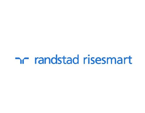M.Tech Electronics and Communication Engineering (VLSI and Embedded Systems)
Upskill and propel your career in the thriving field of electronics and communication engineering with MIT-WPU's M.Tech. programme in VLSI and Embedded Systems. This specialised programme delves into various domains crucial for developing cutting-edge VLSI chips crucial in AI, robotics, IoT, AR, VR, cloud computing, and mobility.
The curriculum covers EDA development, analogue and mixed-signal design, semiconductor chip design, FPGA development, and SOC design. Students gain expertise in IC analysis, design, and implementation using industry-standard tools, preparing them for diverse applications in VLSI chip design across various sectors and technologies. The programme's focus on practical applications ensures graduates are well-prepared for the challenges of the industry.
Industry-Relevant Curriculum: Master in-demand skills through a comprehensive curriculum encompassing Hardware Description Languages (HDL), Algorithms, Integrated Circuit (IC) Design, Design Simulation, Design Synthesis, Electronic Design Automation (EDA) development, Analog and mixed-signal design, Semiconductor chip design, Field-Programmable Gate Array (FPGA) development, System-on-Chip (SoC) design
- Embedded System Design
- Advanced Processors
- Advanced VLSI Design
- CMOS Designs
Admissions / Applications against Cancellations
M.Tech Electronics and Communication Engineering (VLSI and Embedded Systems)
Minimum 50% aggregate score in graduation (4 years) of relevant Engineering Branch from UGC approved University or equivalent (at least 45% marks, in case of Reserved Class category candidate belonging to Maharashtra State only)
And
GATE Qualified (Obtained a positive score in GATE 2022, 2023, 2024) /MIT-WPU CET 2024 /PERA 2024
Or
Sponsored Candidate (Need 2 years of work experience after graduation, in field related to graduation)
The Selection process for this programme is based on the merit of MIT-WPU CET 2024 score / PERA 2024 Score or GATE Score (2022/2023/2024) & Personal Interaction conducted by MIT-WPU.
For admission under sponsored category, candidate should have minimum two years of fulltime work experience in a registered firm/ company/ industry/ educational and/or research institute / any Government Department or Government Autonomous Organization in the relevant field in which admission is sought.
- Cutting-edge curriculum designed by industry experts and hands-on experience with advanced technologies, industry collaborations for projects, and comprehensive career guidance.
- State-of-the-art laboratories with advanced equipment like DELL PowerEdge Servers, Vector Network and Spectrum Analyzers, Real-time Spectrum Analyzers, Logic Analyzers, USRP, NVIDIA CUDA Parallel Computing Platform, and more, along with software tools for optical chip design, simulations, and microcontroller modelling.
- Focuses on areas such as communication, automation, IoT, energy, mobility, transportation, and VLSI.
- MIT-WPU Centre for Industry-Academia Partnerships (CIAP) for placement support in industries like Telecommunication, Television, Mobile, Satellite, and Optical Fiber Communications, among others, providing a complete ecosystem for career development.
- Internships at leading companies like and internship opportunities at BHTC, L & T Infotech, Deloitte, SIEMENS, SCL, Philips, WNS, IMEC Belgium, Volkswagen It Services, KNORR-BREMSE, MOOG INDIA, KPIT, ARAI, Schindler India Pvt Ltd, Varroc, MAN Truck & Bus, Infosys, Cognizant, and many others, and two to three-week national academic emission programmes across government, industry, and university sectors.
- Emphasis on holistic education, offering courses on personal growth, ethics in technology, and the societal impact of AI.
- Access technical, cultural, and sports clubs like STeRG, MASS, CHARM, MARS, KPIT Sparkle, Codec Club, IEEE Student Chapter etc., enhancing overall development.
- Practical Learning- Gain hands-on experience with industry-standard tools, preparing you for real-world IC analysis, design, and implementation.
- Diverse Applications- Prepare for a wide range of career opportunities across various sectors and technologies within the vast field of VLSI chip design.
- Industry-Focused Programme- The programme's emphasis on practical applications ensures graduates are well-equipped to tackle industry challenges with confidence.
- Apply scientific, mathematical, and engineering principles to foster a problem-solving mindset.
- Identify and solve engineering challenges in System Design using VLSI and Embedded Platforms, Semiconductor Technologies, and Signal Processing.
- Utilise various software tools for VLSI and Embedded Systems Design, Analysis, and Verification, including Design Entry, Synthesis, Simulation, Floorplanning, Place and Route, Layout Editors, RTL Schematic, and MATLAB.
- Design and conduct experiments, analyse data, and develop programming skills for simulation experiments.
- Collaborate effectively within multidisciplinary teams, upholding ethical standards and social responsibility.
100% placement assistance

















 admissions@mitwpu.edu.in
admissions@mitwpu.edu.in 

